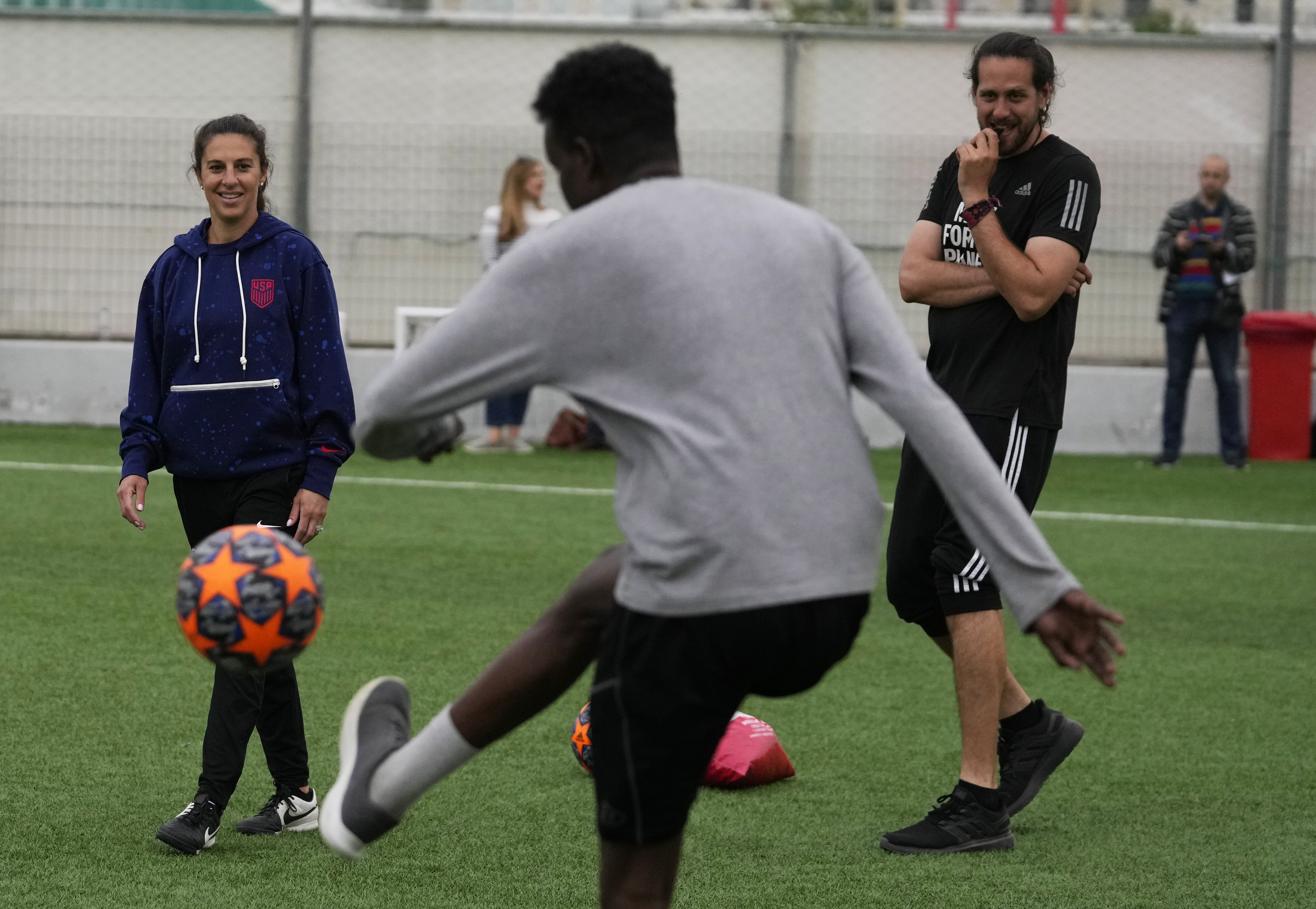This article was published June 5, 2015, as American Pharoah was gunning to become the first Triple Crown-winning horse since 1978. Click here to see how that turned out.
Remain calm.
That is the advice of Hall of Fame jockey Angel Cordero Jr. when it comes to riding in the Belmont Stakes.
Winning? That's another story: Cordero won the 1976 Belmont aboard Bold Forbes, and finished his career 1-for-21, including views from back in the field when Secretariat, Seattle Slew and Affirmed won their Triple Crowns in the 1970s.
"Whatever you do, you don't want to panic," the 73-year-old Cordero said one morning at Belmont Park, a track he thrived at during in 1970s and 80s. "Any sport that you play, if you panic, your body doesn't work the right way."
The same can be said for horses, too.
On Saturday, American Pharoah will take on seven rivals in the Belmont in his bid to end a 37-year Triple Crown drought. The colt's jockey, Victor Espinoza, is set for his third shot at sweeping the Kentucky Derby, Preakness and Belmont. Trainer Bob Baffert is set for his fourth Triple try.
Sports
In partnership with NBC Sports Philadelphia
Since Affirmed won the Triple Crown in 1978, 12 horses left the Belmont starting gate only to come up short at the finish line. With all that in mind, here's some advice from a slew of racing people — Baffert to Bailey, Cauthen to Clement — on what it takes to navigate the 1 1/2-mile Belmont, the longest distance most horses will ever run.
STEVE CAUTHEN, jockey, 1978 Triple Crown winner Affirmed:
"It's so easy for guys that don't ride there regularly to move a bit prematurely. When you're at the half-mile pole at Belmont you feel like you're at the three-eighths pole at a regular track. Victor has ridden in the Belmont, so I think he's got his perspective. It's a question of pacing the race. Every good jockey is usually a good judge of pace."
CHRISTOPHE CLEMENT, trainer, 2014 Belmont winner Tonalist:
"I got lucky ... you need to have a clear trip. You need to get a position and if you are good enough you will do it. It's always a question of rhythm and being comfortable."
BARCLAY TAGG, trainer, 2002 Derby, Preakness winner Funny Cide; third in Belmont:
"Why you asking me, I lost it the only time I ran in it! I think it's one you should train for here (at Belmont). It's a big sandy track, has a lot more sand than any other track. All these horses and riders come from different places and now they're on a big old sandy track and it makes it tougher. And you better figure out if the mile pole (here) is where the six-furlong pole would be at a smaller track."
JERRY BAILEY, jockey: 1991, 2003 Belmont winners Hansel, Empire Maker:
"You cannot make a mistake in Belmont Park when you are judging pace. That is the most important aspect of a jockey's job in the Belmont Stakes — to judge the pace correctly. If you do that and you have the best horse, you're likely going to win because traffic is generally not an issue, the horses are spread out, and you shouldn't have any traffic problems at a mile-and-a-half on the big, sweeping turns. If you get the pace right it sure helps. If you don't, you're likely to lose.
SHUG McGAUGHEY, trainer, 1989 Belmont winner Easy Goer:
"You've got to ride the race, ride your own horse and be patient. For someone who doesn't know the track, when you turn down the backside, you've got a long way to go. You look up and see all that area in front of you and you're not even close to the turn. You have to run your own race. If your horse wants to run a mile-and-a-half, he'll do it."
KENT DESORMEAUX, jockey, 1998, 2008 Derby, Preakness winners Real Quiet — second in Belmont; and Big Brown — DNF in Belmont; 2009 Belmont winner Summer Bird:
"The true test of a champion is whether they can recover and hold their form in three weeks going a mile-and-a-half. For him (American Pharoah) to put in an effort like that, he's going to be tired. But Bob knows what to do. He's only failed by a lip and a neck and then some of winning the Triple Crown. Baffert knows how to get 'em ready."
BOB BAFFERT, trainer: 1997, 1998, 2002, 2015 Derby, Preakness winners Silver Charm, Real Quiet, War Emblem, American Pharoah:
"You're asking me? I can count 1 1/2-miles wins on one hand. Sky Kingdom. Point Given in the Belmont. ... Really, I don't tell the riders anything."
PAT DAY, jockey: 1989, 1994, 2000 Belmont winners Easy Goer, Tabasco Cat, Commendable:
"Don't move too soon. It's called Big Sandy and it's probably the only time most or all will be asked to run this far. My approach was get away from the gate clean, get comfortable as soon as possible, conserve energy and wait as long as possible to run."
NICK ZITO, trainer, 2004, 2008 Belmont winners Birdstone, Da' Tara:
"You've got to have a horse with the pedigree, somewhere in there. And it shouldn't be like you have to build endurance into him. Maybe some endurance work, but nothing out of his routine."



